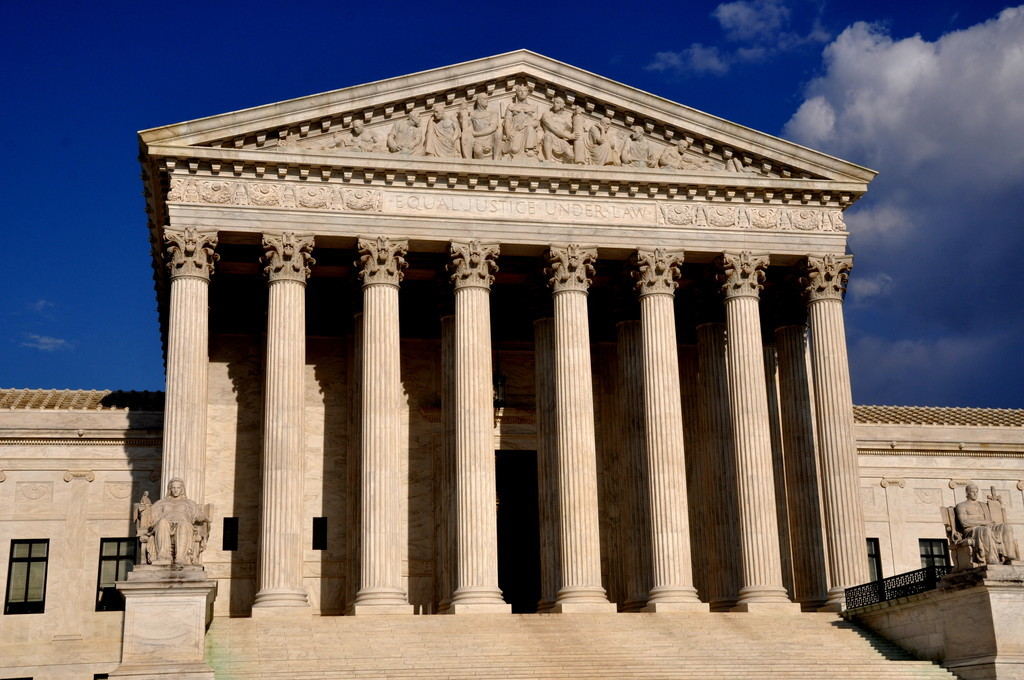US Supreme Court rules federal courts cannot police partisan gerrymandering
Xinhua | Updated: 2019-06-28 05:06

WASHINGTON -- The US Supreme Court on Thursday ruled that partisan-gerrymandering challenges to electoral maps are political questions that are not reviewable in federal courts.
The 5-4 decision split along ideological lines effectively takes the courts out of the politics of gerrymandering, leaving Congress and the states with the responsibility to regulate the practice legislatively.
The ruling could fundamentally affect the balance of power in US Congress and state legislatures.
Chief Justice John Roberts and the court's other four conservatives said partisan election maps drawn by North Carolina Republicans and Maryland Democrats are constitutional despite their one-sided nature.
"We have no commission to allocate political power and influence in the absence of a constitutional directive or legal standards to guide us in the exercise of such authority," Roberts said.
"Excessive partisanship in districting leads to results that reasonably seem unjust. But the fact that such gerrymandering is 'incompatible with democratic principles' does not mean that the solution lies with the federal judiciary," Roberts wrote.
"We conclude that partisan gerrymandering claims present political questions beyond the reach of the federal courts. Federal judges have no license to reallocate political power between the two major political parties, with no plausible grant of authority in the Constitution, and no legal standards to limit and direct their decisions," he said.
Justice Elena Kagan decried the ruling on behalf of the court's four liberals. "For the first time ever, this court refuses to remedy a constitutional violation because it thinks the task (is) beyond judicial capabilities."
"In giving such gerrymanders a pass from judicial review, the majority goes tragically wrong," she said. "The practices challenged in these cases imperil our system of government."
The ruling vacates previous rulings on the district maps in the states of Maryland and North Carolina, and requests that the cases be dismissed "for lack of jurisdiction."
Democrats in North Carolina had challenged congressional districts drawn by Republicans, and Republicans in Maryland had claimed that the state's map was drawn in such a way that it intentionally eliminated a Republican congressional seat.
























